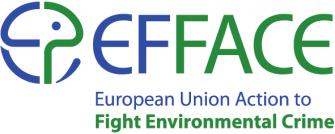
Environmental crime—including poaching, illegal logging and fishing—poses a serious threat to sustainable development. As a major contributor to the fight against environmental crime, as well as a major destination for contraband, the European Union is currently in the process of reviewing its policies on environmental crime. On 23 April, R. Andreas Kraemer, Director, Ecologic Institute, Berlin and Tuukka Castrén, Senior Forestry Specialist, AES, discussed roles, responsibilities, and approaches of the EU in fighting international environmental crime. The panel was moderated by Julian Lee, Environment Specialist, AES, at the World Bank.
The event, co-hosted by the World Bank, was part of a series of events marking the fifth anniversary of Ecologic Institute in Washington, DC (EIUS). On this occasion, EIUS and Ecologic Institute Berlin featured their transatlantic activities through workshops, presentations, and discussions.
The event served as an opportunity for US and international institutions to provide input into the review of the roles, responsibilities, and approaches of the EU in fighting international environmental crime. It was also a learning opportunity on current policy approaches and the reform process that is underway, allowing participants to improve their understanding of the role the EU plays in combating environmental crime.
A gathering of senior environmental specialists from the US and international institutions working on various aspects of environmental crime attended the luncheon and contributed to a dynamic discussion. Adding to consideration of how the EU approaches environmental crime, participants were able to share examples of how the US deals with certain issues, creating a unique transatlantic exchange. Participants considered how current governance and legal systems could be adapted to better deal with environmental crime and how to increase international cooperation. For example, by establishing cooperative relationships and regular practices for information exchange, national-level authorities can more quickly and effectively tackle transboundary criminal activity.









